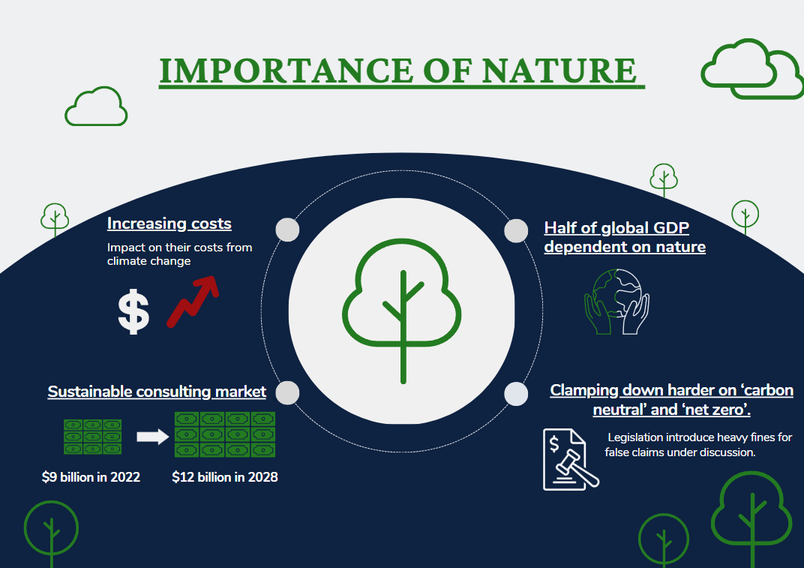Sustainability Specialists – Guiding the Way to a Viable Future

Concerns about the imminent danger of environmental breakdown are no longer confined to activists and scientists. Half of CEOs see an impact on their costs from climate change in the coming 12 months, according to a recent survey of global business leaders by PwC. As calls for more sustainable business models, economies and societies grow louder and more urgent, the need for specialists who can lead companies and organisations through the required transitions is rising in parallel. Sustainability specialists are playing an increasingly important role in these shifts across almost every sector.
As is often the case with relatively new concepts, definitions are still somewhat in flux. Indeed, the term sustainability itself is used to refer to business models and companies with the potential to continue over the long-term, as well as to operations and practices that do not damage the environment or overuse natural resources. In addition, sustainability is more than occasionally used interchangeably with ESG (environmental, social and governance).
There certainly is significant overlap between sustainability and ESG, though the latter includes a broader range of issues covering treatment of workers, inclusivity, equity, philanthropy and a company’s impact on society. The exact scope of a sustainability specialist’s responsibility will vary greatly depending on the field and entity involved, but can include social and governance matters. What is less variable is that companies, organisations and governments are becoming more focused on sustainability in all its forms.
Sustainable growth
Alongside the growth of specialist firms like Environmental Resources Management (ERM), numerous organisations are building their own dedicated in-house teams to guide them on sustainability and ESG.
Globally, the sustainable consulting market is set to grow from around $9 billion in 2022 to $12 billion in 2028, according to Proficient Market Insights.
Sustainability specialists help plan, execute and assess organisational change that contributes to long-term viability and avoids token gestures, meaningless slogans or greenwashing. Companies in sectors from fossil fuels to air travel to coffee have had misleading claims about their environmental credentials exposed in recent years, damaging their reputation at a time when both consumers and employees are more conscious of sustainability in their decision making.
Coming out in the greenwash
In the UK, the Advertising Standards Authority has banned campaigns by Hyundai, Shell, Pepsi and HSBC over exaggerated or inaccurate claims. At the end of last year, the watchdog announced it will be clamping down even harder on use of terms like ‘carbon neutral’ and ‘net zero,’ and legislation that would introduce heavy fines for false claims is now under discussion.
Types of projects that sustainability specialists can be found working on are as varied as the entities employing them. From mining operations to urban planning and public buildings to financial services, sustainability specialists should ideally be involved in every stage of a project or be able to give end-to-end input on existing operations.
Qualification requirements also vary by sector, employer and project, but a background in fields including environmental science, consulting, business and management studies, or degrees in subjects related to a specific area such as finance or engineering, are valuable. Meanwhile, capabilities in project management, communication and analytics are essential.
Expanding demand
Large corporations and organisations still account for the vast majority of demand for sustainability specialists but SMEs and other smaller entities will also require their services as decarbonisation and the shift towards a more circular economy progresses.
In Japan, the government is touting measures for a multistakeholder push towards sustainability and net carbon neutrality by 2050. The Ministry of Economy, Trade and Industry (METI) in 2021 announced guidance for disclosure and engagement in promoting sustainable finance for a circular economy, the world’s first such policy initiative from a national government. The same year METI was one of the organisations involved in the Japan Partnership for Circular Economy (J4CE), designed to promote private-public partnerships for the transition.
Initiatives such as these will raise the profile of, and increase the need for, sustainability specialists across the board in Japan, as will the growth in ESG investing.
Even from a purely economic perspective, destruction of the environment is bad for business. Around $44 trillion, about half of global GDP and more than previously thought, is dependent on nature to some degree, according to a World Economic Forum report.
While the gargantuan scale of the task ahead in the transition to a circular and sustainable global economy and society should not be underestimated, it is becoming ever more evident with each extreme weather event that there is no viable alternative.
By: Gavin Blair

